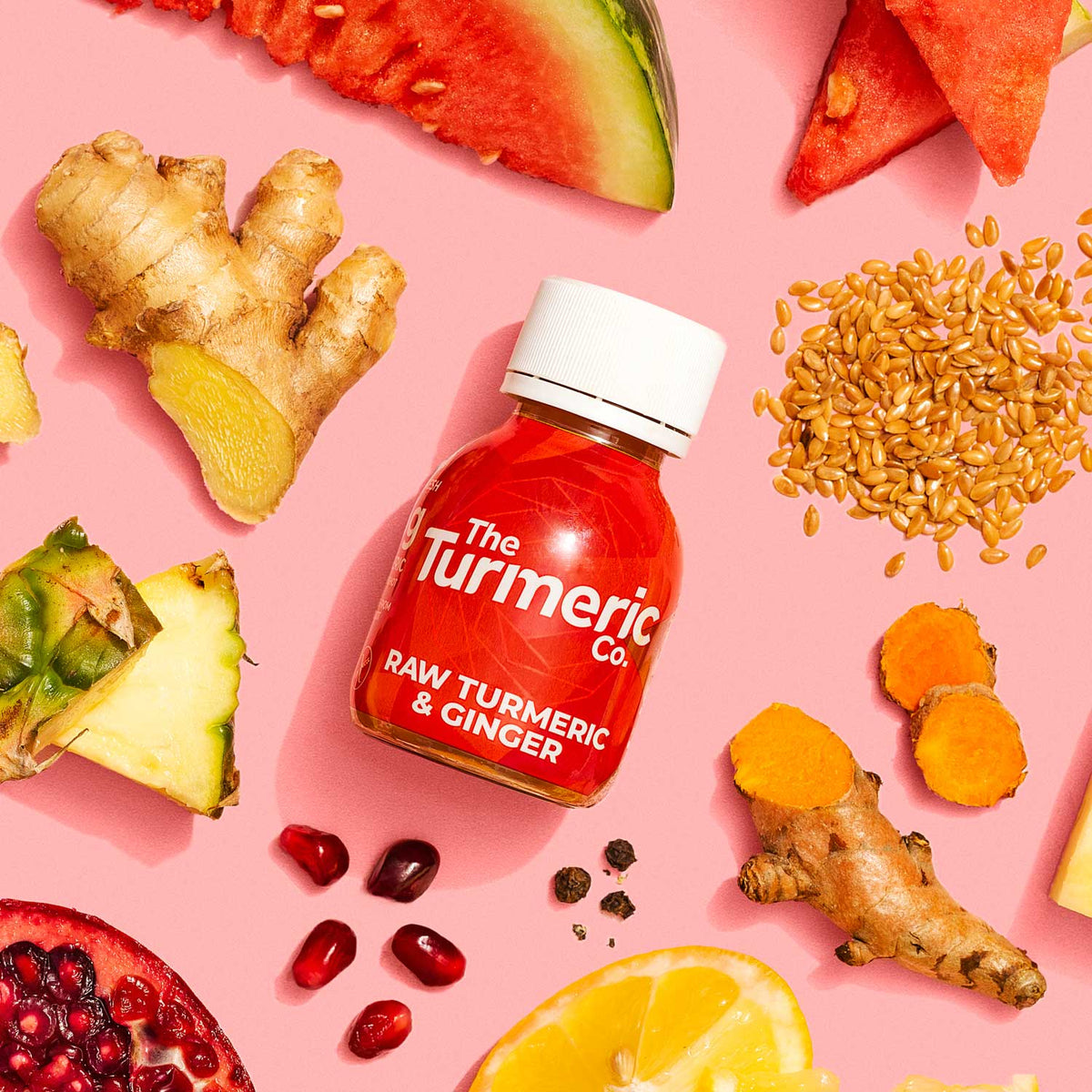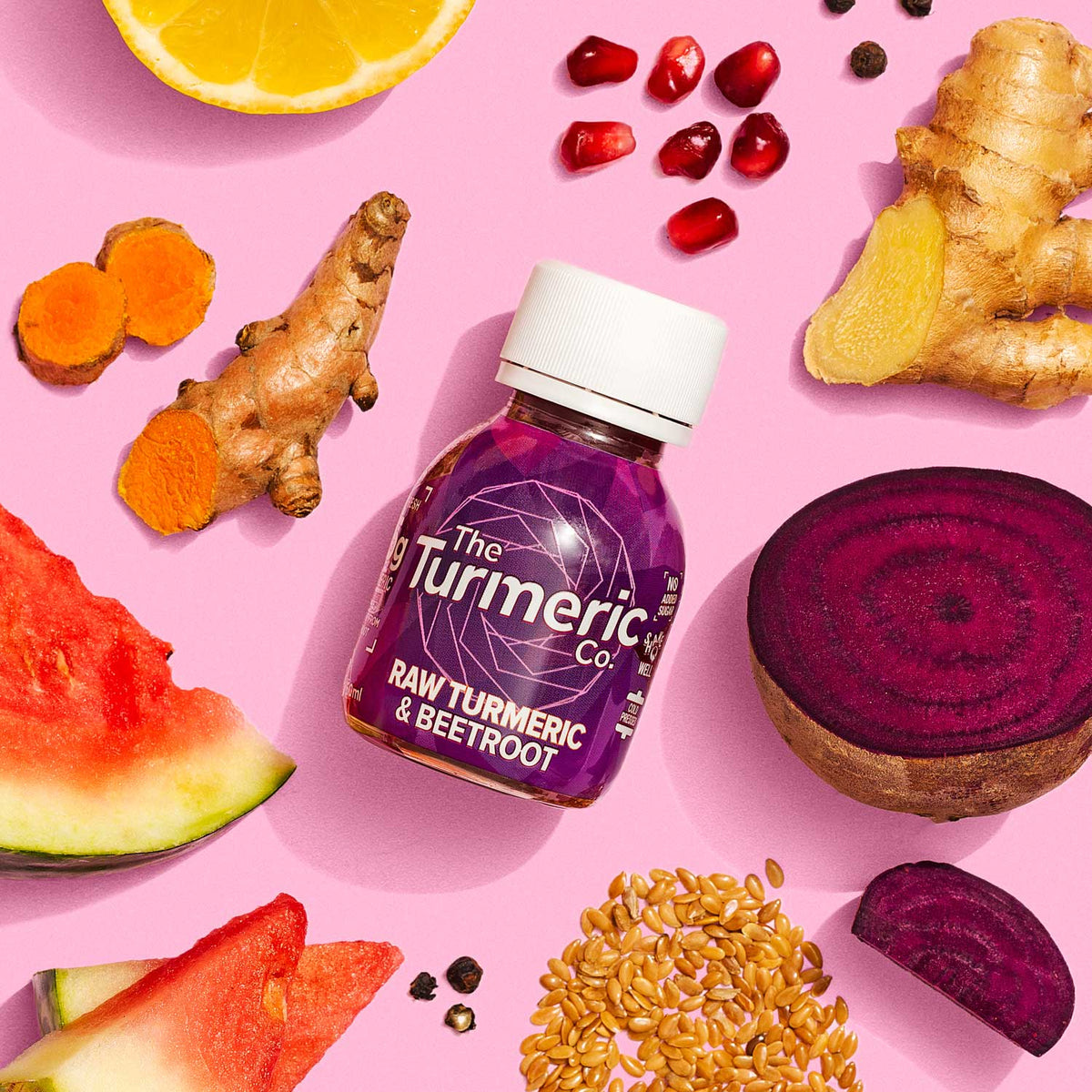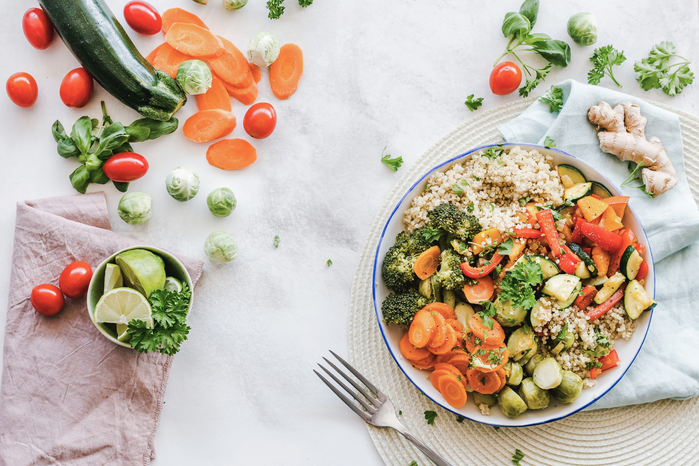Our bodies are like a complex puzzle, and scientists have found that the way our gut – with its community of tiny living organisms – interacts with our immune system, is a crucial piece.
Enter the 'gut-immune' connection - an understanding that the link between food and immunity can help us to be healthier, and happier!
In this blog, we'll explore the best foods for gut health (and the worst), breaking down all the complicated bits about the world where the trillions of microbes in our gut meet the forces that keep us healthy.
Why is gut health important?
The gut, or ‘gastrointestinal tract’, is a remarkable system that not only helps us digest food, but also houses trillions of microorganisms, collectively known as the gut microbiota or gut microbiome.
There are over 100 trillion microorganisms in our gut microbiome, and collectively they weigh around the same as a fully-grown hamster! These tiny inhabitants, including gut bacteria, play a crucial role in maintaining the delicate balance of our system, with over 70% of immune cells being found in the gut.

By not consuming enough diverse foods, drinking too much alcohol, or regularly using antibiotics, the microbiome in the gut can be negatively impacted and cause an array of health problems.
So if you’re bloated, have unexplained fatigue, or are prone to skin conditions such as eczema... you could have an unhealthy gut!
What are the best foods to eat for a healthy gut?
In short, what you eat plays a key role in the levels of good bacteria in your gut.
Fruits and vegetables should be your go-to for diversifying your gut microbiome; it is crucial to steer clear of processed foods, high-fat options, and foods with elevated levels of refined sugar.
Some of the best gut-loving foods that you can add to your weekly shop include:
- Yoghurt
- Almonds
- Olive oil
- Peas
- Bananas
- Garlic
- Ginger
Probiotic foods are another way to nourish the beneficial bacteria in your gut, as they contain live microorganisms that contribute to the 'good' microflora in your body.

Kefir, kombucha, kimchi, and sauerkraut are hailed within the world of nutrition as gut-friendly probiotics. Although these foods may not be at your local corner shop, they can be found at your nearest superstore or health food market, and are well worth the trip, as suggested benefits extend to heart health support, weight management, and cancer prevention.
You truly are what you eat, and foods that function further than fuelling your body can offer a range of health benefits.
How does the immune system work?
Our immune system is like a protective army, always ready to defend us from harmful bacteria, viruses, and parasites. It is responsible for recognising and eliminating any threats, keeping us healthy and free from infections!
Its primary function is to recognise foreign substances while distinguishing them from the body's own healthy cells. The immune system can be broadly divided into two main components - the innate immune system and the adaptive immune system:
Innate Immune System
This is the first line of defense and provides immediate, nonspecific protection against a wide range of pathogens. These include the natural creation of physical and chemical barriers, such as the mucus produced when you pick up a cold!
Adaptive Immune System
This system provides a highly specific and targeted response to pathogens.
It takes time to develop and learn, but the adaptive immune system 'remembers' how to react to certain germs, allowing it to respond quicker and more effectively when encountering the same pathogens again!
That's why we tend to get certain infections, like chicken pox, once in our lifetime.
How does gut health influence the immune system?
In short, when the gut microbiome is diverse and thriving, it promotes a healthy immune system!
This is because a healthy gut microbiome produces compounds, such as short-chain fatty acids, that help regulate immune cell function. These compounds act as messengers, signalling to immune cells to let them know when to activate or calm down.

Essentially, our gut microbiome helps to educate the immune system, teaching it to distinguish between harmless substances and dangerous pathogens that enter our systems.
The result? A balanced response from the immune system.
What happens when your gut microbiome is imbalanced?
When the gut microbiome is off-balance (a condition known as dysbiosis), it can lead to chronic inflammation and a weakened immune response.
Dysbiosis can occur due to various factors, including:
- Poor diet
- Stress
- Antibiotics
This weakened immune response can make us more susceptible to infections, allergies, and autoimmune diseases.
Without a healthy gut microbiome, our immune system may overreact to harmless substances, leading to allergies, or fail to recognise and eliminate dangerous pathogens, leaving us vulnerable to infections.

Understanding the intricate relationship between the gut and the immune system opens up exciting possibilities for improving our health. If you want to give your gut some extra TLC to keep the colds and flus away, make sure to have a Raw Turmeric & Ginger shot every morning.
So, the next time you hear someone refer to the gut, remember that it's not just about digestion. It's about the incredible connection between our gut and our immune system, working together to keep us healthy and thriving.

The Hal Robson-Kanu Guide To Fitness & Nutrition
Gain exclusive insight into habits that will make every day a healthy and fulfilling one.













